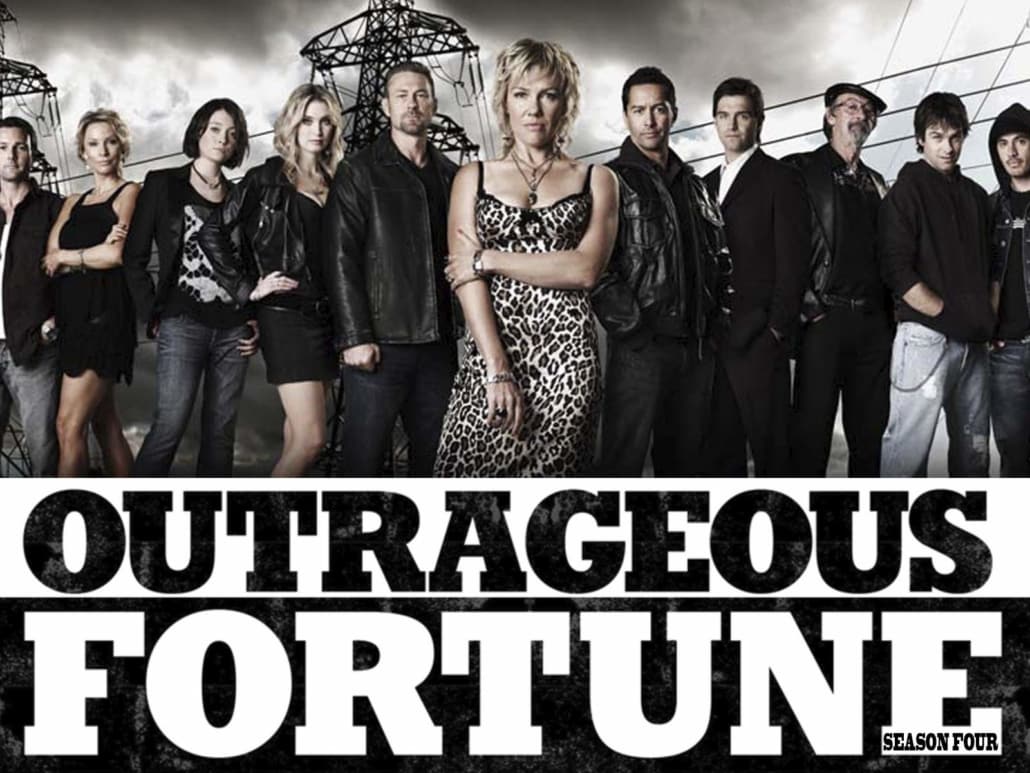‘Outrageous fortune’ is a phrase that appears in the famous ‘to be or not to be’ soliloquy in Shakespeare’s play, Hamlet. It is one of the thousands of phrases from the poems and plays of William Shakespeare that novelists, screen writers, singers and other creative people have used as a title for one of their works.
When writers use phrases like that, and others, for example, ‘brave new world,’ ‘the seeds of time,’ or ‘the dogs of war,’ it is quite difficult to get back to the original, seemingly casual, usage of it by Shakespeare in one of his texts. That is especially the case when the phrase is linked to a very famous film or television series, as this one is, to the long-running, most famous New Zealand television series, Outrageous Fortune.
Sometimes when something unpleasant happens in our lives – something unexpected and unwelcome – we may refer to it as ‘outrageous fortune.’ That’s the way Hamlet sees it too. We should link the phrase with another – ‘the slings and arrows,’ so we have the quotation ‘the slings and arrows of outrageous fortune.’
Hamlet is talking about the bad things that happen to us in life as being attacks by this personified ‘Fortune,’ firing at us with deadly weapons. It is part of his reason for wanting to walk away from life.
‘Slings and arrows of outrageous fortune’ is a linguistic construct typical of Shakespeare. It is an abstract idea made concrete with visual images, and not only visual but quivering with physical action, resulting in a vibrating phrase that could never be dismissed or forgotten. Shakespeare does that all the time.
The result here is the perception of a reality – the unexpected attacks, with pain and suffering and imminent death. The medieval sling was a frightful weapon, sending a rock whizzing towards you and, if it hit you, you were gone. If it didn’t kill you it would maim you and it would be painful. The single arrow was not likely to kill you outright but it might. And if not it would be deeply embedded somewhere in your body and the pain would be unbearable and drive you crazy. You would probably die later, in great pain, from infection.
What an image! All in just a few words. We all have to suffer the slings and arrows of outrageous fortune and we know the pain that bad things happening can feel like. Shakespeare transforms that into a graphic, physical image of pain and suffering. The personified ‘Fortune’ is outrageous in his treatment of us, and in Shakespeare’s hands, through his language, we can actually feel the pain of his actions.

Outrageous fortune tv show ad…
One can take almost any other phrase in the ‘to be or not to be’ soliloquy and one will find that it is one of those used as a title somewhere or other. ‘Nobler in the mind,’ ‘a sea of troubles,’ ‘perchance to dream,’ ‘what dreams may come,’ ‘shuffle off this mortal coil,’ are just a few at the beginning of the soliloquy, but one can go on to the end and find a lot more phrases that people choose for their autobiographies and other writings. Moreover, several phrases from the soliloquy have become idioms used in our everyday speech, for example ‘must give us pause,’ ‘a consummation devoutly to be wished,’ and ‘there’s the rub.’




Thank you for revealing another layer of this text…
Wonderful educational find
“ersmalnenkolbenalder”
a very common german phrase :)
Slings and arrows are directional, and Shakespeare’s emphasis is on how fortunate can prove decisive and in a single instant change your life, in fact change it into death. Contrast this with the medieval Wheel of Fortune which was thought of as omnipresent in life, always cycling between good and bad.